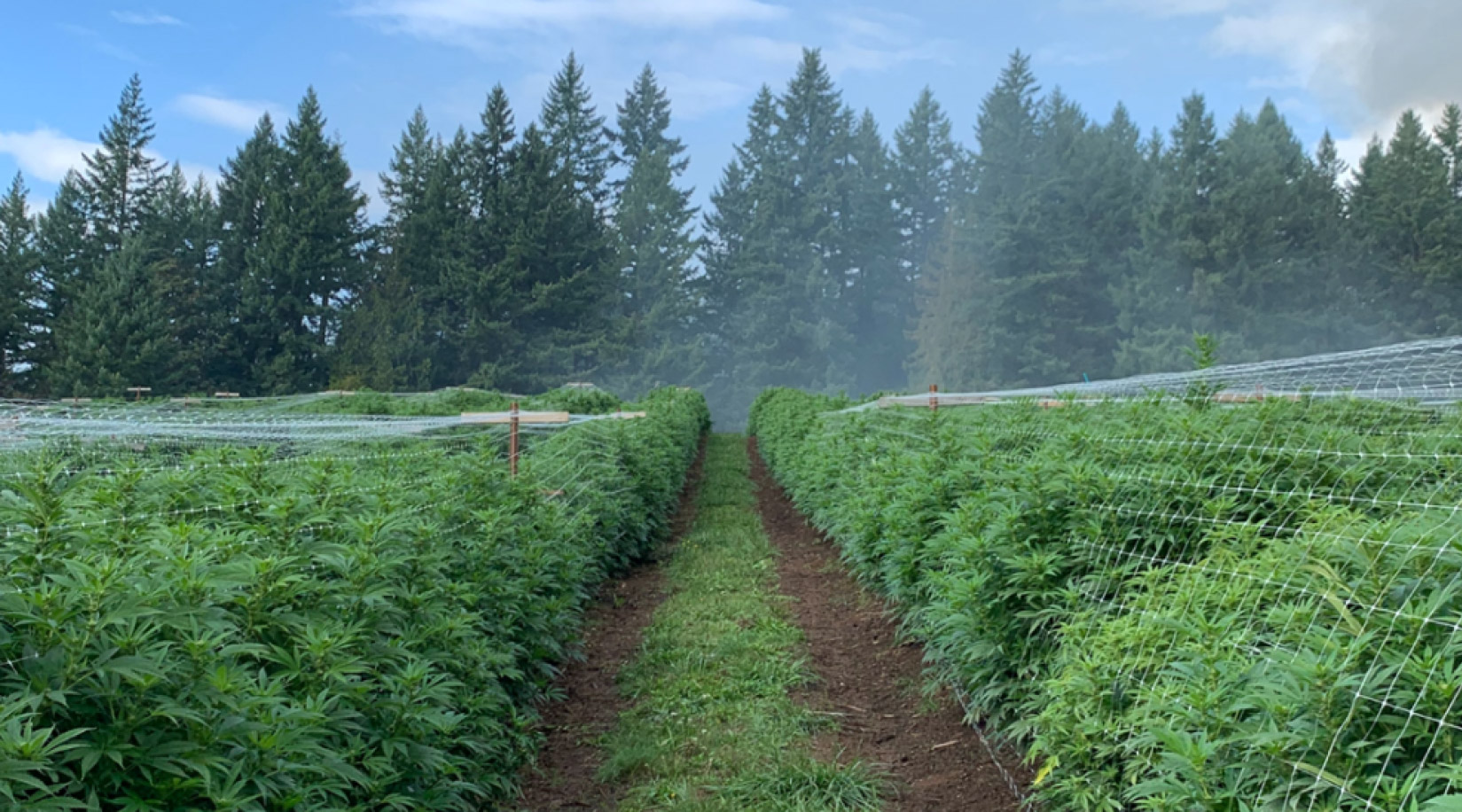
Our Story Began as Farmers
After 26 years as vintners in Oregon’s Willamette Valley, we began our journey growing cannabis in 2016. Our farm practices are modeled on those of our vineyard, emphasizing sustainability and quality. As we expand beyond our home state of Oregon, we continue to partner with farmers who share the same principles and practices, allowing for a consistent product across all states.

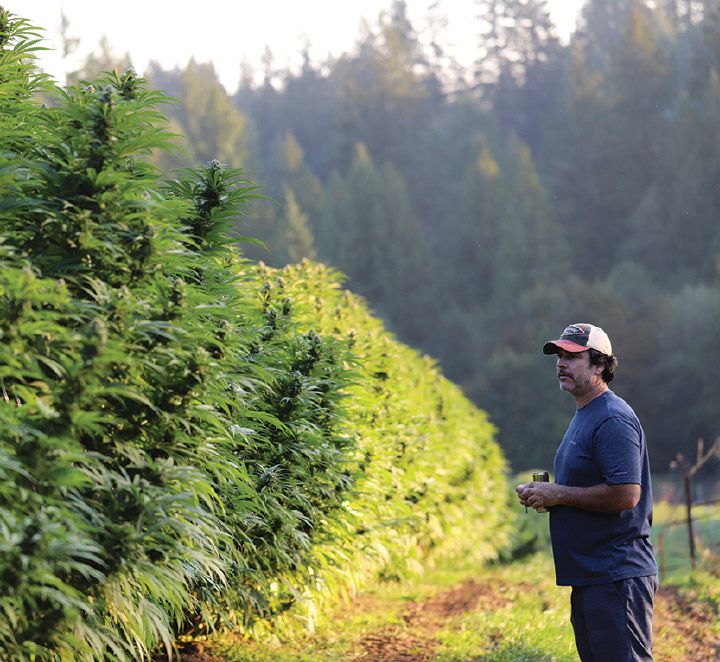
Leaf samples are sent for lab analysis to determine nutrient needs. We then develop fertilizing programs for each strain individually, in real time. Smoky Flower Farm, Oct. 2020
Our Harvest Process
Upon harvest, all of our cannabis is de-leafed, then flash-frozen and processed into Live Rosin – a full spectrum, solventless concentrate.
Using dry ice, our cannabis is frozen within minutes, then stored at -20˚F until the time of extraction. Flash-freezing prevents plant material from decomposing and preserves terpenes that evaporate during traditional drying and curing processes.

Living Soils
Our farming philosophy is to develop a bustling ecosystem in our soils, where microbes can break down organic fertilizers and beneficial bugs protect our plants from pests.
To avoid disturbing soil habitats, we layer rather than till. We plant cover crops to provide new habitats, nutrients, and aeration. All of our fertilizers are naturally derived, as well as our pest and disease control – consisting of chicken manure, compost tea, and essential oils such as cinnamon.
Leaf & Soil Samples
Routine soil and leaf samples are sent for lab analysis to determine extactly which nutrients we are lacking. Each strain has its own unique nutrient needs, which is why we test leaf samples for every strain in our field, then design individual fertilizing regiments to fit the needs of each strain.
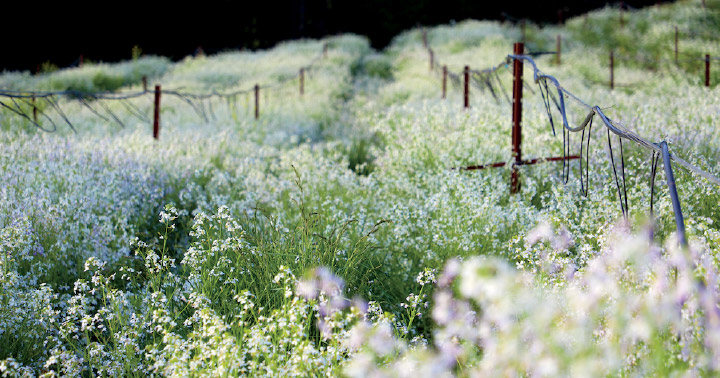
Daikon radishes, fava beans, and other cover crops break up soil with their deep roots. Smoky Flower Farm, May, 2021.
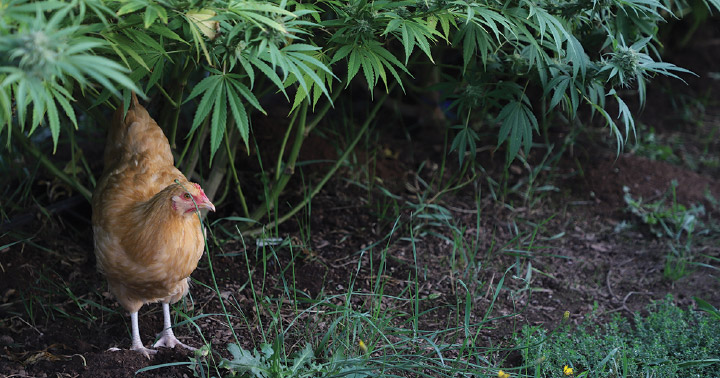
Chickens are excellent gardeners, eating bugs, scraping the soil, and leaving behind almost everything the plant needs. Smoky Flower Farm, Sept. 2020.

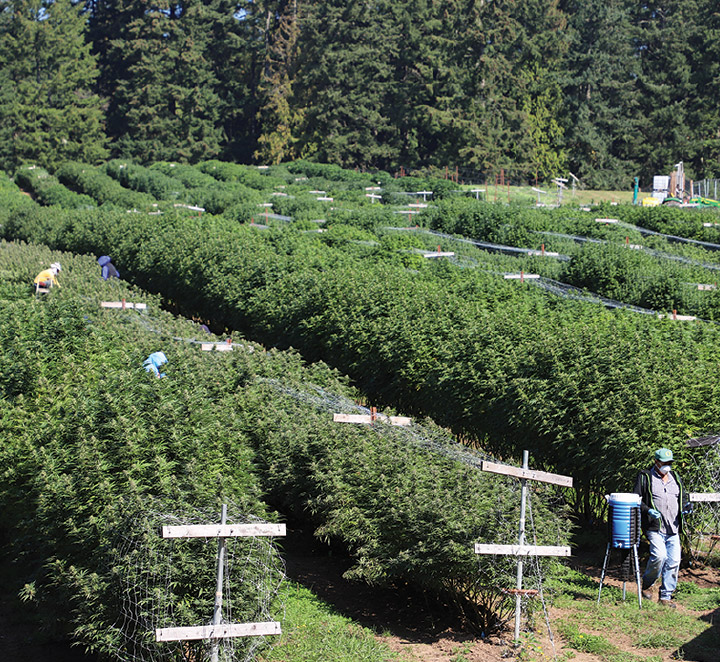
Modeled after our vineyards, wide aisles and strong trellising make for ideal sun exposure and material handling. Smoky Flower Farm, Sept. 2020.



